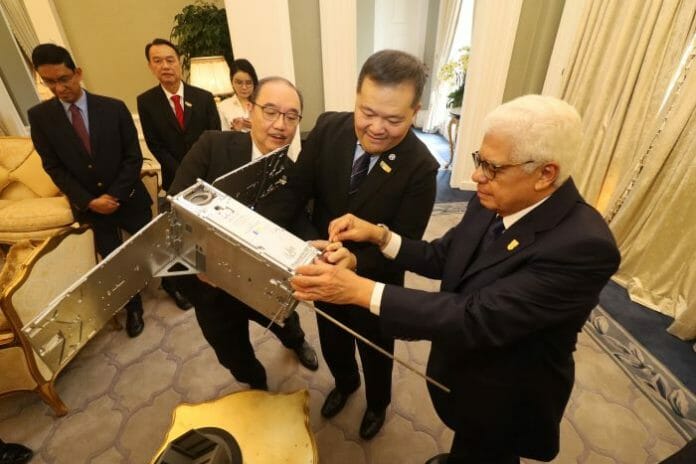Following the successful launch of the Malaysian-designed A-SEANSAT-PG1 satellite, ANGKASA-X, is offering FREE data access to solutions via the satellite for a period of 1 year.
The company is giving government agencies, universities, and companies its satellite data for Research & Development satellite applications and research purposes. This follows from the successful launch on 27 June 2023 where the PG1 satellite has been deployed to the intended orbit designated for ANGKASA-X and successfully transmitted signals back to Earth ground station subsequently. Angkasa X said its engineers were able to control and manage PG1 and continue to capture information and data regarding the health of the satellite onboard systems throughout its orbit and send back this data to the command centre.
Dr. Sean Seah, Group Executive Chairman and Chief Executive Officer of ANGKASA-X, “With this significant milestone achieved, ANGKASA-X is proudly offering Malaysian organisations, both in the public and private sectors, free access to a range of Earth Observation (EO) and Automatic Identification Systems (AIS) applications for a period of 12 months starting from July 2023 (terms and conditions applied),” said Dr. Sean. “Social inclusion is at the core of our values, and now for the very first time organisations can conduct R&D for future applications for the next generation of Low Earth Orbit (LEO) satellites.”
The Earth Observation (EO) applications provided by ANGKASA-X cover a diverse range of applications, including Agriculture Monitoring & Management, Land Usage Mapping, Maritime Mapping & Monitoring, Border & Area Monitoring, Disaster Assistance Monitoring, Forestry Mapping & Monitoring, and Mineral Mining Monitoring. These services aim to assist organisations in making informed decisions, thereby improving efficiency, and promoting sustainable practices.
Meanwhile, the Automatic Identification Systems (AIS) applications encompass Maritime Domain Awareness, Vessel Tracking & Identification, Port Traffic Management, Search & Rescue Assistance, as well as monitoring of illegal fishing and unauthorised encroachment into restricted sea areas, all of which play a vital role in enhancing maritime safety, security, and management.
The satellite is currently undergoing various flight tests, including attitude control and high-speed downlink tests. Over the next few weeks, the satellite will undergo mission payload tests to assess its performance and capabilities. Once the attitude control and high-speed downlink tests are completed, the satellite will go through the calibration process to ensure the payloads are working according to the specification.
This project represents a crucial step towards the realisation of ANGKASA-X’s ambitious plan to launch a constellation of LEO satellites in the coming years. These satellites will be designed and assembled in Malaysia, by Malaysians, cementing the nation’s position as a key player in the global space industry and the space tech ecosystem.









